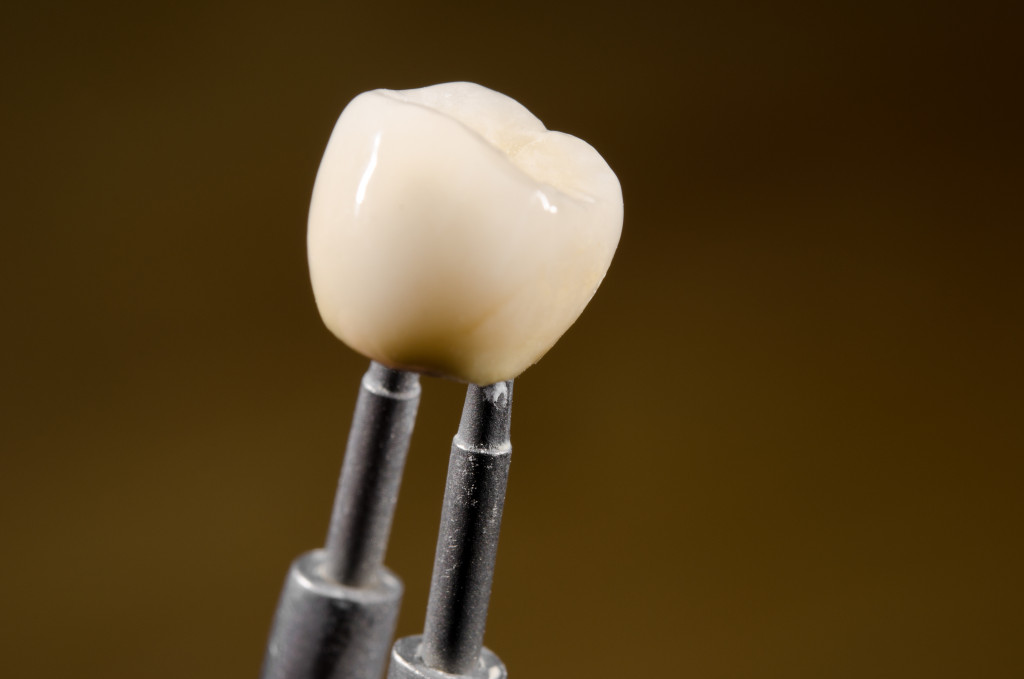Disclaimer: This website provides health information for educational purposes only and is not a substitute for professional medical advice, diagnosis, or treatment. Always seek the guidance of a qualified healthcare provider with any questions you may have.
Seniors should consider getting a tooth replacement to help protect against gum disease, improve chewing ability, and enhance self-esteem.
- Brushing teeth twice daily with fluoride toothpaste and flossing daily are essential for maintaining healthy teeth and gums.
- Using an antimicrobial mouthwash can help reduce the bacteria in the mouth that can contribute to gum disease.
- Eating a healthy diet with foods low in sugar and carbohydrates helps nourish teeth and gums.
Gum disease is a common problem among seniors, but it doesn’t have to be. With regular oral hygiene and professional dental care, seniors can prevent gum disease and keep their teeth healthy for years. This article will give seniors an overview of how to prevent gum disease and keep their mouths healthy.
Get a tooth replacement.

Seniors should consider getting a tooth replacement to help protect against gum disease. Tooth loss can lead to increased harmful bacteria, increasing the risk of periodontal or gum disease. Furthermore, teeth replacement improves chewing ability, reducing the likelihood of indigestion or other digestive issues associated with poor nutrition.
Additionally, a properly fitted and well-taken care-of prosthetic tooth can help improve one’s smile, leading to higher self-esteem and more positive social interactions. Ultimately, replacing missing teeth is an excellent way for seniors to stay physically and emotionally healthy.
Practice proper oral hygiene.
Here are some tips on how seniors can practice proper oral hygiene to prevent gum disease:
Brush teeth twice a day.
As seniors age, they are more susceptible to certain dental diseases and conditions. Therefore, proper oral hygiene is essential for maintaining healthy teeth and gums. Brushing teeth twice a day with fluoride toothpaste helps to remove harmful bacteria that accumulate in the mouth, which can contribute to gum disease.
Brushing all surfaces of each tooth thoroughly is essential for removing food particles and plaque, thus preventing cavities and other oral problems from forming. You can remove remaining bacteria that weren’t brushed away by brushing the tongue and gums. Additionally, daily flossing helps clean areas between teeth where a toothbrush may not reach.
Floss daily

Regular flossing is essential to a senior’s oral hygiene routine and can help prevent gum disease. By caring for the spaces between teeth, flossing removes plaque build-up, decreasing the risk of developing gingivitis or early-stage gum disease. It is critical for seniors to pay close attention to their dental health, as gum disease can lead to more severe conditions, such as periodontitis and tooth loss.
Moreover, when seniors neglect their oral hygiene, bacteria in the mouth can enter the bloodstream via open sores in the gums– leading to inflammation and possibly other health issues such as diabetes, stroke, heart disease, and even cancer. To ensure optimal health, seniors should floss daily using gentle but firm pressure moving up and down the sides of each tooth, which will help remove any trapped food particles.
Use an anti-microbial mouthwash.
As seniors age, their oral health may become more challenging to maintain. One way to combat decreased oral health is by regularly using an antimicrobial mouthwash. This helps reduce the bacteria in the mouth that can contribute to gum disease, a condition often linked with increasing age which can result in tooth loss.
For maximum effectiveness, follow the instructions on your mouthwash label and thoroughly gargle the solution around your teeth, gums, and tongue before spitting it out. Doing this twice daily will help keep your gums strong and healthy. Seniors need to take steps like regularly using an antimicrobial mouthwash because declining dental hygiene can lead to infections and other serious medical problems.
Eat a healthy diet
Eating a healthy diet is incredibly important for seniors, as proper nutrition can go a long way in preventing gum disease and other oral health issues. It is recommended that seniors consume foods low in sugar and carbohydrates, as these tend to be the most significant contributors to gum disease. Such foods include fruits, vegetables, lean proteins, grains, and dairy products.
Consuming these types of food will help nourish teeth and gums while maintaining overall health. In addition to helping prevent gum disease, a healthy diet can reduce the risk of other health problems such as heart disease, stroke, certain cancers, diabetes, and osteoarthritis. For this reason, seniors need to ensure they are consuming the right food to stay healthy and maintain strong gums and teeth.
Avoid smoking or using chewing tobacco products
Smoking or chewing tobacco products can lead to general health issues and contribute to gum disease. For seniors, it is important to avoid these bad habits as much as possible to help protect against gum disease.
Gum disease can naturally occur with age due to inevitable wear and tear on the mouth and reduced saliva production. Poor oral hygiene, diabetes, and certain medications have also been linked to increased risk for gum disease in seniors. Therefore, refraining from smoking or chewing tobacco products is an important step towards helping to prevent gum disease and keep gums healthy over time.
These are just a few tips to help seniors prevent gum disease and keep their mouths healthy. With regular oral hygiene and professional dental care, seniors can maintain strong teeth and gums for many years to come.




